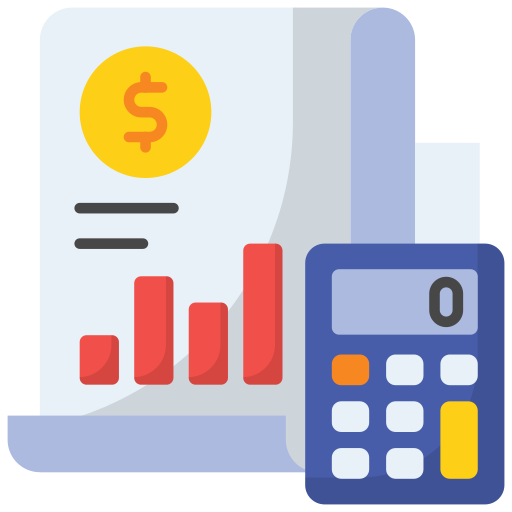
Tired of Paying Too Much on Taxes?
Here's how to keep more of your hard-earned money
Are you a business owner struggling with tax compliance and financial burdens? Do you need more time and knowledge to manage your business accounting? Running a business can be overwhelming, especially when it comes to taxes. But don't worry, we can help!
And get our exclusive FREE Checklist!

Struggling With Tax Compliance?
Here’s How To Keep More Of Your Hard-Earned Money
Book A Free Business Assessment Call Today!
Are you a business owner struggling with tax compliance and financial burdens? Do you need more time and knowledge to manage your business accounting? We understand that running a business can be overwhelming, especially when it comes to taxes. But don't worry, we can help!
And get our exclusive FREE Checklist!


Here’s why you need to
book a call with us:
Explore year-round tax savings strategies to keep more of your hard-earned money.
Understand why our support aligns with your financial freedom and early retirement dreams.
Discover how our expertise safeguards you from IRS troubles, reducing audit risks and providing a secure business environment.
And get our exclusive FREE Checklist!
And get our exclusive FREE Checklist!

It’s a Call With Us or With the IRS — You Pick!

Explore how we can help you manage your tax obligations, from income tax to sales tax, ensuring compliance and peace of mind.

Learn how choosing the right business structure can impact your tax burdens and unlock potential tax savings.

Discover solutions to maintain accurate financial records effortlessly, freeing up your time and minimizing stress.
And get our exclusive FREE Checklist!

Who Are We?
About Bernstein Tax Group
At Bernstein Tax Group, our mission is to make your business thrive.
Through decades of experience in tax and CFO services for entrepreneurs, we strive to instill great business basics, keep you safe from any legal troubles with state or federal governments, and save you money through year-round tax savings strategies and tactics.
We take care of the tedious paperwork for you so that you can keep more of your hard-earned money.
And get our exclusive FREE Checklist!
What People Says


I thought I was paying too much for my taxes every year so I hired Branden to do a custom tax plan for me to try and save me some money. Him and his team did not disappoint! They got my company structure set up right, showed me tons of expenses I was missing and gave me some great business advice! They made a huge difference on my taxes this year! I highly recommend them if you think you're overpaying on your taxes.
Matt Berchiolly
Businessman


I have been using Bernstein Tax Group for over five years now for my accounting and tax needs. Trish and her staff are very responsive and make me feel confident when it comes to my personal and professional accounting needs. I recommend Bernstein Tax Group to everyone who asks for an accounting referral and feel confident with this referral.
Sandra Wallace
Real Estate Lawyer


Best accounting service I’ve used so far. Truly honest and want what’s best for their customers. Very prompt and great at keeping me updated with everything i have going on with them and not to mention saving me Thousands due to previous accountant mistakes!! Highly recommend if you think your accountant isn’t as efficient as they should be! Ask for Branden!
James Gulker
Businessman
Don’t Delay It Any Longer, Book Your Free Business Assessment Call Now!
This consultation has the potential to maximize your tax savings and help you become the entrepreneur you’ve always dreamt to be — and we’re giving it away for free.
But not for so long. This free consultation won't be available for much longer – secure your spot within the next 24 hours!
Take action now, don’t wait any longer!
And get our exclusive FREE Checklist!


Download the Ultimate Checklist for Tax Reduction, Cash Flow Improvement, and Wealth Planning - It's Free!
Our checklist will help you understand the importance of cash flow management and how to improve receivables, manage payables, and forecast future cash flow to make informed business decisions. It also offers a wealth planning section with actionable steps for setting financial goals, creating a budget, diversifying investments, and planning for retirement and estate distribution.
Discover various tax-saving opportunities, cash flow management techniques, and wealth planning strategies.
Plan for long-term wealth accumulation with wealth planning strategies such as diversifying investments and estate planning.
Empower yourself to take control of your financial future and achieve your business and personal financial goals.
And get our exclusive FREE Checklist!
Frequently Asked Questions
What are some solutions that business owners are looking for when trying to lower taxable income?
When business owners are looking to lower their taxable income, they are seeking various solutions. Here are some solutions that can help them achieve this goal:
1. Strategic Expense Management: Business owners are interested in identifying and maximizing deductions for eligible business expenses. They want to ensure they take advantage of all available tax deductions while staying compliant with tax laws.
2. Utilizing Tax Credits: Business owners are looking for ways to leverage tax credits available to them. These credits can offset their tax liability and result in significant savings.
3. Implementing Retirement Plans: Business owners understand the benefits of contributing to retirement plans, such as SEP-IRAs or 401(k)s. By contributing to these plans, they can simultaneously reduce their taxable income and save for their future.
4. Exploring Entity Structuring: Business owners may consider structuring their business entities strategically to optimize their tax situation. This could involve setting up a Limited Liability Company (LLC) or an S-Corporation to take advantage of certain tax benefits.
5. Engaging in Tax Planning: Business owners are interested in year-round tax planning to manage their tax obligations proactively. By working with tax professionals, they can develop strategies to minimize taxes and maximize deductions throughout the year.
6. Understanding Tax Laws and Regulations: Business owners seek guidance in navigating complex tax laws and regulations. They want to ensure they comply with both state and federal tax requirements to avoid penalties or audits from agencies like the IRS.
By implementing these solutions, business owners can effectively lower their taxable income, save money on taxes, and focus on growing their businesses.
What are the best tax-saving options for business owners?
The best tax-saving options for business owners vary based on individual circumstances, but here are some commonly utilized strategies:
1.Monthly Bookkeeping: Regular bookkeeping is crucial for tracking income and expenses. It helps businesses identify potential deductions and ensures accurate tax filing.
2.Monthly Financial Reports: Regular financial reports can help business owners understand their financial position better and make informed decisions that could potentially save them money on taxes.
3.Unlimited Coaching and Guidance: Having access to professional guidance can be invaluable. Experts can provide advice tailored to the business's specific needs and circumstances, helping to minimize tax liabilities.
4.Business and Personal Return Filing: Properly filing both business and personal tax returns is essential. Mistakes can lead to penalties or missed deductions, so utilizing a service that handles both can be beneficial.
5.Year-round Tax Planning: Instead of waiting until tax season, year-round tax planning allows businesses to implement strategies that can lower their taxable income throughout the year. This proactive approach often results in significant tax savings.
6.Compliance with State and Federal Agencies: Ensuring compliance with all relevant tax laws and regulations can prevent costly fines and penalties. Services that assist with this can be a great asset.
7.Additional Services: Depending on the specifics of the business, other services such as entity restructuring, retirement plan contributions, utilizing tax credits, and strategic expense management can also be highly beneficial for tax savings.
Always consult with a tax professional or a firm like Bernstein Tax Group that provides these services to ensure you're making the best decisions for your business's unique needs.
How can I maximize my tax savings as a business owner?
Maximizing your tax savings as a business owner involves a combination of effective accounting practices, proactive tax planning, and strategic decision-making. Here are some ways you can achieve this:
1.Engage Professional Services: Consider engaging the services of a reputable firm like Bernstein Tax Group. They offer a range of services, including taking over accounting and tax responsibilities, which can help ensure accuracy and compliance while freeing up your time to focus on other aspects of your business.
2.Year-round Tax Planning: Rather than just thinking about taxes at the end of the financial year, engage in year-round tax planning. This involves making business decisions with tax implications in mind throughout the year, and Bernstein Tax Group offers this service.
3.Business and Personal Tax Return Filing: Ensure that both your business and personal tax returns are filed correctly. Mistakes can lead to penalties or missed deductions. Bernstein Tax Group handles both business and personal tax return filing, ensuring everything is done correctly and on time.
4.Ensure Compliance: Make sure you're in compliance with all state and federal tax laws and regulations. Non-compliance can result in costly fines and penalties. Bernstein Tax Group helps ensure compliance, limiting your risk and exposure.
5.Seek Guidance and Coaching: Regular consultations with tax professionals can provide valuable insights into potential deductions and tax-saving strategies. Bernstein Tax Group provides guidance and coaching tailored to your specific needs and circumstances.
6.Utilize Tax-Saving Strategies: There are various strategies and tactics that can be used to minimize your taxable income. Bernstein Tax Group can help identify these opportunities based on your unique business situation.
Remember, every business is unique, so it's best to seek personalized advice tailored to your specific circumstances. You can reach out to Bernstein Tax Group via email at [email protected] or by phone at 561-627-1489 for more information.
What are my deductions for running a business?
Running a business comes with various expenses, many of which can be deducted from your taxable income. Here are some common deductions for business owners:
1.Home Office Deduction: If you use part of your home exclusively for conducting business, you may be able to deduct expenses related to that portion of your home.
2.Vehicle Expenses: If you use your vehicle for business, you can deduct the business-use portion of the costs related to your vehicle.
3.Salaries and Wages: Payments to employees, including salaries, wages, bonuses, commissions, and taxable fringe benefits are deductible business expenses.
4.Supplies: The cost of business supplies is deductible.
5.Depreciation: The wear and tear, deterioration, or obsolescence of property such as buildings, machinery, vehicles, furniture, and equipment used in the business can be deducted.
6.Rent on Business Property: You can deduct rent as an expense if the rent is for property you use in your business.
7.Utilities: Business utilities such as electricity, water, heating, and cooling are deductible.
8.Insurance: Premiums for business insurance are deductible.
9.Professional Services: The cost of professional services, such as lawyers, accountants, consultants, etc. can be deducted.
10.Travel: Business travel expenses are deductible.
11.Education: Business-related education expenses can be deducted.
These are just some of the potential deductions available to business owners. It's important to consult with a tax professional like Bernstein Tax Group to ensure you're maximizing all possible deductions. They offer unlimited coaching and guidance and can help identify additional opportunities based on your unique business situation. You can reach them via email at [email protected] or by phone at 561-627-1489. Their office is located at 4440 PGA BLVD Suite 600, Palm Beach Gardens, FL 33410.
Remember, each business is unique and tax laws can change, so it's always best to seek personalized advice tailored to your specific circumstances.
How can I set up a tax-free retirement plan for business owners?
Setting up a tax-free retirement plan for business owners involves strategic planning and understanding of the available retirement savings options. Here are some common methods:
Roth IRA: Contributions to a Roth IRA are made with after-tax dollars, meaning you won't get a tax deduction for your contributions. However, the money grows tax-free and withdrawals in retirement are also tax-free.
Roth 401(k): Like a Roth IRA, a Roth 401(k) is funded with after-tax dollars. The advantage is that there's no income limit to participate, and contribution limits are higher than a Roth IRA.
Life Insurance Retirement Plan (LIRP): A Life Insurance Retirement Plan is a type of permanent life insurance policy that has a cash value component which grows over time. This growth is tax-free, and you can take out loans against the cash value of the policy tax-free.
Municipal Bonds: These bonds are issued by local governments, and the interest they pay is generally exempt from federal taxes and may also be free from state and local taxes.
Health Savings Account (HSA): If you have a high-deductible health plan, you can contribute to an HSA, which allows for tax-free contributions, growth, and withdrawals for qualified medical expenses. Once you reach age 65, you can withdraw the money for any reason without penalty, but it will be subject to income tax.
Real Estate Investment: Income from rental properties can provide cash flow in retirement. You can also benefit from tax advantages such as depreciation and the potential for tax-free capital gains through a 1031 exchange.
Remember, each business owner's situation is unique, and these options may not be suitable for everyone. It's always best to consult with a tax professional or a firm like Bernstein Tax Group to discuss your specific circumstances and goals. They offer unlimited coaching and guidance and can help identify the best strategies for you. You can reach them via email at [email protected] or by phone at 561-627-1489. Their office is located at 4440 PGA BLVD Suite 600, Palm Beach Gardens, FL 33410.
Please note that tax laws are complex and can change frequently, so it's important to stay updated and seek professional advice.
What are the different types of business tax credits?
Tax credits are a great way for businesses to reduce their tax liability. These credits are subtracted directly from the taxes you owe, rather than reducing your taxable income like tax deductions. There are various types of business tax credits that you might be eligible for:
Research & Development (R&D) Tax Credit: This credit is available to businesses that incur expenses for research and development. The goal is to incentivize innovation and technological advancement.
Work Opportunity Tax Credit (WOTC): This credit is given to employers who hire individuals from certain target groups who have consistently faced significant barriers to employment.
Disabled Access Credit: Businesses that incur expenditures for providing access to persons with disabilities may be eligible for this credit.
Small Employer Health Insurance Premiums Credit: Small businesses and tax-exempt organizations that pay at least half of the premiums for single (not family) health insurance coverage for their employees may be eligible for this credit.
Energy Investment Tax Credit (ITC): This credit is available to businesses that invest in renewable energy projects.
Low-Income Housing Tax Credit (LIHTC): This credit encourages private investment in affordable housing for low-income families.
New Markets Tax Credit (NMTC): This credit encourages investment in low-income or distressed communities.
Empowerment Zone and Renewal Community Employment Credit: This credit is available to employers who conduct business in an empowerment zone or renewal community and hire employees who also live in these zones or communities.
Foreign Tax Credit: If your business has paid or accrued foreign taxes to a foreign country or U.S. possession and is subject to U.S. tax on the same income, you may be able to take either a credit or an itemized deduction for those taxes.
These are just some of the tax credits available for businesses. It's always a good idea to consult with a tax professional or firm like Bernstein Tax Group to ensure you're maximizing your business tax credits. They can provide guidance and help identify additional opportunities based on your unique business situation. You can reach them via email at [email protected] or by phone at 561-627-1489. Their office is located at 4440 PGA BLVD Suite 600, Palm Beach Gardens, FL 33410.
Please note that tax laws are complex and change frequently, so it's important to stay updated and seek professional advice.
How do I take advantage of business tax deductions?
Taking advantage of business tax deductions involves understanding what expenses are deductible and keeping accurate records. Here's how you can do it:
Understand Deductible Expenses: As mentioned earlier, common business deductions include home office expenses, vehicle expenses, salaries and wages, supplies, depreciation, rent on business property, utilities, insurance, professional services, travel, and education.
Keep Accurate Records: Maintain detailed records of all your business expenses. This includes receipts, invoices, mileage logs for business travel, utility bills for your home office, etc. The more documentation you have, the better prepared you'll be in case of an audit.
Separate Business and Personal Expenses: Use separate bank accounts and credit cards for business and personal expenses. This will make it easier to track business expenses and calculate deductions.
Consult with a Tax Professional: A tax professional can provide advice tailored to your specific circumstances and help you identify additional deductions you may not be aware of.
Bernstein Tax Group specializes in working with entrepreneurs and offers a range of services, including year-round tax planning, business and personal return filing, and compliance with state and federal agencies. They also offer unlimited coaching and guidance, which can be particularly helpful for newer entrepreneurs or seasoned vets who feel overwhelmed or confused due to quick growth without proper guidance.
You can contact Bernstein Tax Group for a free business analysis call to discuss your situation and see how they can help you maximize your business tax deductions. You can reach them via email at [email protected] or by phone at 561-627-1489. Their office is located at 4440 PGA BLVD Suite 600, Palm Beach Gardens, FL 33410.
Remember, tax laws are complex and can change frequently, so it's important to stay updated and seek professional advice.
What are the rules for claiming business losses for tax purposes?
Claiming business losses for tax purposes is a practice that can help reduce your tax liability. However, there are specific rules and guidelines set forth by the IRS that you must follow:
Business vs. Hobby: The IRS distinguishes between a business and a hobby. If your activity is not carried out for profit, it is considered a hobby and you cannot deduct your losses. You must show that you have made a profit in at least three of the last five tax years, including the current year, to be considered a business.
Net Operating Losses (NOL): If your business expenses exceed your business income, you may have a net operating loss (NOL). You can generally carry NOLs forward to other tax years to reduce your taxes in those years.
At-Risk Rules: You can only claim a loss to the extent you are "at risk" for the investment. This generally equals the amount of money you have invested in the business plus any amounts you are personally liable for.
Passive Activity Limits: If you are not actively involved in the business, your ability to claim losses may be limited by the passive activity rules. Passive activity losses can only be used to offset passive activity income.
Form 1045: To carry an NOL back or forward on your tax return, you must attach a statement that shows all the important facts about the NOL. Most taxpayers use IRS Form 1045, Schedule A – NOL.
Documentation: Keep thorough records of all business expenses, losses, and profits. This documentation will be crucial if the IRS ever questions your claims.
The rules surrounding business losses can be complex and change frequently, so it's important to consult with a tax professional. Bernstein Tax Group specializes in helping entrepreneurs navigate these complexities. They offer services such as monthly bookkeeping, monthly financial reports, unlimited coaching and guidance, business and personal return filing, year-round tax planning, and compliance with state and federal agencies. You can reach them via email at [email protected] or by phone at 561-627-1489. Their office is located at 4440 PGA BLVD Suite 600, Palm Beach Gardens, FL 33410.
Please note that this information is a general guideline and may not apply to everyone's situation. Always consult with a tax professional for advice tailored to your specific circumstances.